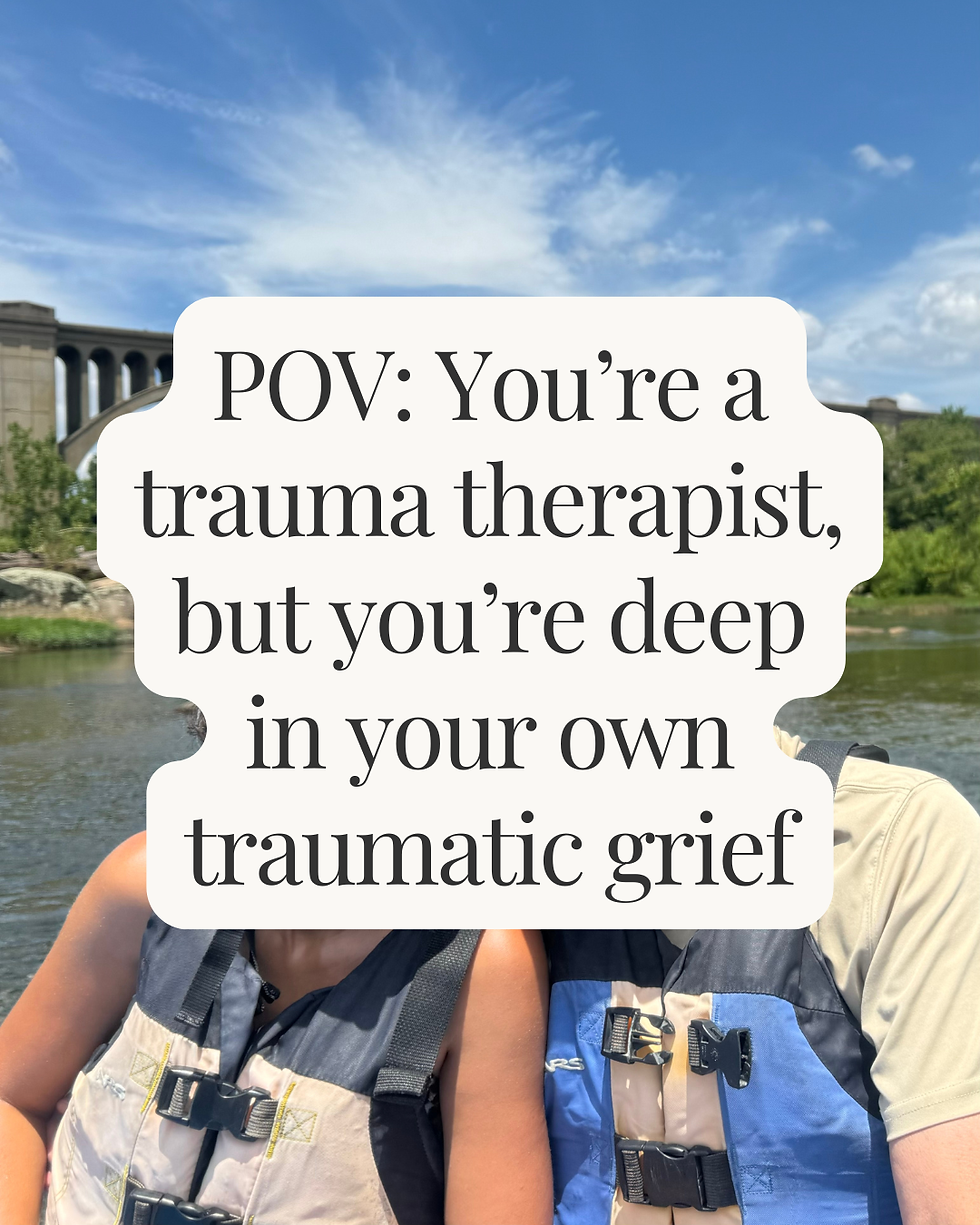Tips for a Sober Winter
- Adrienne Loker

- Dec 22, 2023
- 3 min read
Updated: Apr 1, 2025
By: Adrienne Loker, LCSW
We all get stressed around the holidays as we attempt to establish some form of stability and predictability: Who is coming this year? When are they leaving? Is it okay to talk about Jim's divorce? Is my mother still counting calories? Did anyone mop the floor yet?
Whether it's the anticipatory adrenaline of the approaching festivities, or the dopamine drop in the aftermath, we all digest some amount of tension. It’s well established that increased #stress leads to decreased activity in higher brain areas, as well as reversion to more habitual responses from the midbrain. In other words, we can sometimes act like emotional children instead of enlightened adults.

For people in #recovery, if this stress is not managed well, they are at increased risk for returning to old behaviors. Family members and loved ones are also at risk. #Relapse for family might look like: shutting down, feeling ready to explode, overfunctioning for otherwise functional people, or engaging in some other less-than ideal #coping behaviors.
It is for this reason that recovery or other important self-care activities are maintained or even increased during this season. It seems like just the right time to take a ‘break’ from recovery, but it is precisely the worst time to pause.
Here's a list of a few simple tricks to keep your recovery live and well:
Maintain morning routines - this allows the reptilian part of your brain to breathe. The more stability you can embrace, the less likely this part of your brain is to respond to stimulation as a threat.
Set plans to check in with members of your #support system throughout the day. This extra layer of insulation shields from old thinking errors that sometimes creep in to justify acting out. Remember that your support system is also probably looking for a break from the hustle and bustle, so calling them has benefits for more than just you.
Let your family know what your self-care plans are and how they can help you. Plans are more effective when the whole team is on board. It also provides an extra layer of accountability that preemptively staves off thinking errors that try to justify or rationalize why you shouldn't follow your self-care plan.
Identify what you may need to do if stress (or other negative #emotions) become too high. Having a somatically-informed or parts-based plan helps to minimize the risk of dysregulation, and more effectively restores regulation than traditional coping skills.
Lastly, be sure to recap the day or debrief the next morning with someone who knows you well. This is a great time to notice the successes and unexpected joys. Putting to words our internal experience is paramount to integrating the positive lessons learned so that you can have an even more successful holiday season next year.
If your family needs extra support this season, our Recovery Coaches at Seeking Depth to Recovery are specially trained to help your family plan around blind spots that can threaten #sobriety, family relationships, and emotional safety. Our a-la-carte menu includes: recovery planning, monitoring of urine drug screens and/or breathalyzers, 1:1 weekly support, facilitation of effective communication, and application of coping skills that allow families to step out of their anxious defensive state, and reconnect from a place of love and joy. Get a jump start by downloading our Intervention Workbook now.
Meet our highly trained #trauma therapists who use #EMDR, #SomaticTherapy, and #InternalFamilySystems to help families and individuals who've been traumatized by substance use move beyond symptom management to restore their lives.
All of us at Seeking Depth to Recovery wish you a prosperous and joyful New Year!
.png)



Comments